What do Aristotle, Sylvia Plath, Jon Bon Jovi, Morgan Freeman, “Sherlock Holmes” and Thomas Jefferson have in common with one another?
They are just a few of the many people (and a few fictional characters) from across the world and centuries who have nurtured and harnessed the sweet, essential power of one of nature’s busiest and most useful creatures, the honey bee. They are apiculturists — more commonly known as beekeepers.
Humankind has been harvesting honey and other honey bee byproducts, such as royal jelly, beeswax and propolis (bee glue), for possibly tens of thousands of years, first from the wild, then later from bees “kept” in hollowed-out trees, baskets and mud and pottery containers. Through the millennia, humans found better ways to keep bees (the current style of hives used in beekeeping has been around since the mid 1800s) and also discovered that bees offer us much more than the riches of their hives. They are critical to our lives.
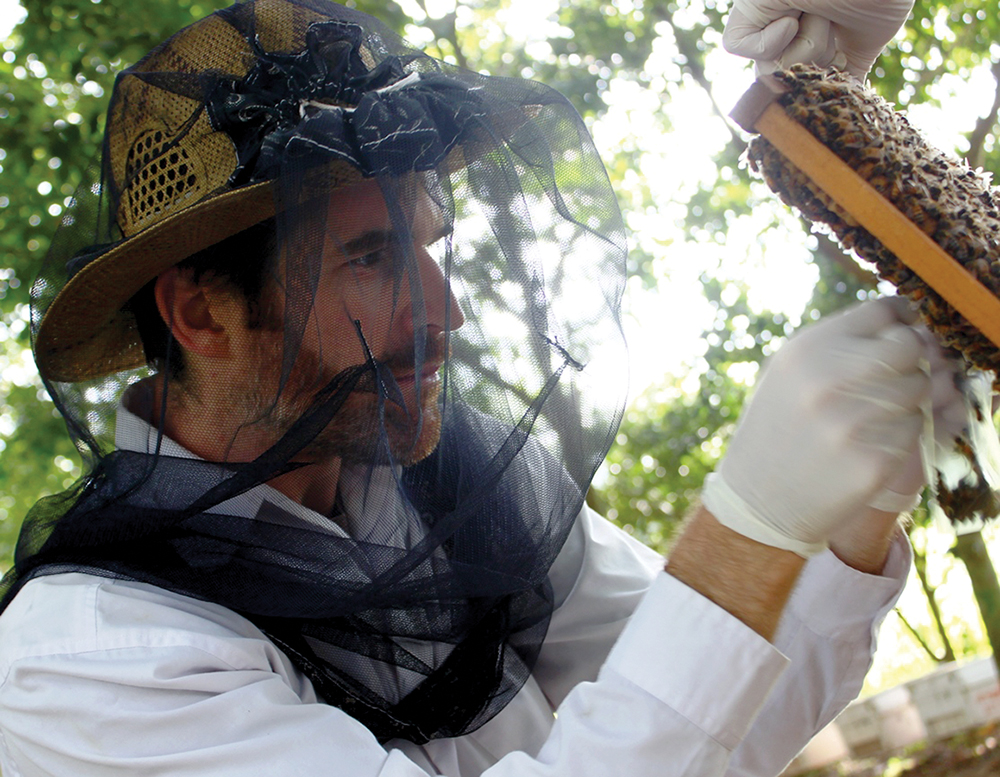
Auburn University photo
That’s because honeybees are members of a vital group of insects (and other animals such as hummingbirds and bats) that pollinate the plants that we and other animal species rely on for survival. Pollinators are the primary reasons that we humans have many fruits and vegetables on our plates, clothing on our backs and clovers and other forages in our pastures and fields. They also ensure that other animals have seeds, berries and other plant-derived sources of food in the wild.
According to 2010 statistics, these diverse pollinators are responsible for the production of $19 billion or more worth of agricultural crops in the United States, or about one-third of our nation’s food supply. Honeybees alone are essential in the production of at least eight commercial crops in the U.S. and they also help boost yields for a variety of other crops.
In Alabama, we rely on honeybees to pollinate melons, cotton and kiwifruit and to contribute to the pollination of many other agronomically important plants. In fact, they are so important to our state’s agricultural well-being that the Alabama Legislature passed a bill in 2015 designating the queen honey bee as Alabama’s official agricultural insect (the Monarch butterfly is the state’s official insect).
Though beekeeping has been around for millennia, it has enjoyed a resurgence in recent years thanks in part to an increased interest among consumers in eating healthy, local foods. Perhaps a growing appreciation for the many flavors that derive from various pollen sources and the opportunity to help protect this vital little pollinator have driven that, too. For whatever reason, more and more part-time “hobbyist” beekeepers, as well as a growing number of commercial beekeepers, are taking up their smokers (those cans that produce bee-calming vapors) and are tending to the bees.
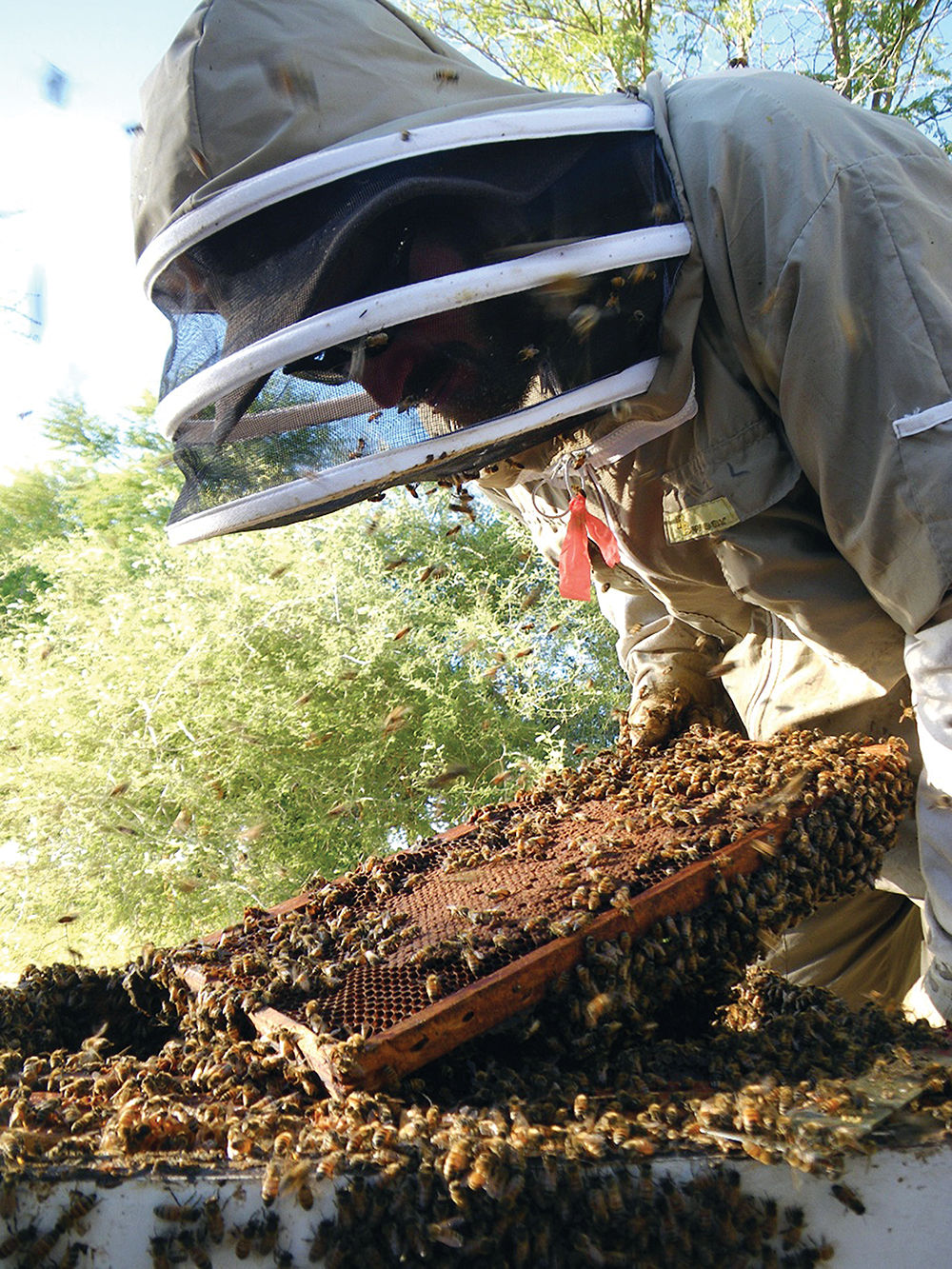
Auburn University photo
Help from an expert
It is that trend that helped bring Geoff Williams to Alabama. Williams is an assistant professor in Auburn University’s Department Entomology and Plant Pathology who studies honeybee and pollinator health issues. Though Auburn has had faculty in the past whose work focused part-time on honeybees, Williams is the first-ever faculty member to give honeybees this kind of full-time attention, and he has been as busy as, yes, a bee, since he arrived here in November 2016.
A native of Canada who came to Alabama by way of a position in Switzerland, Williams has been setting up his research and teaching program on the Auburn campus, including a bee yard at his laboratory, with a focus on a variety of pollinator issues important to Alabama, but also to help Alabama’s bees and beekeeping industry.
To accomplish this, Williams is working closely with the Alabama Beekeepers Association and other local beekeeping groups throughout the state, the Alabama Farmers Federation’s Bee and Honey Producers Division, the Alabama Department of Agriculture and Industry’s Apiary Health Unit and the Alabama Cooperative Extension System.
While the number of people interested in beekeeping is large and growing, the number of bees in the state is unknowable — honeybees are not domesticated, so beekeepers don’t directly control them or their populations. Instead, apiculturists try to provide bees with clean, safe artificial shelters where the bees can set up colonies and then go about their business.
Going about their business, however, has become harder for honeybees in the last decade because of a variety of threats, which Williams is addressing through his research.
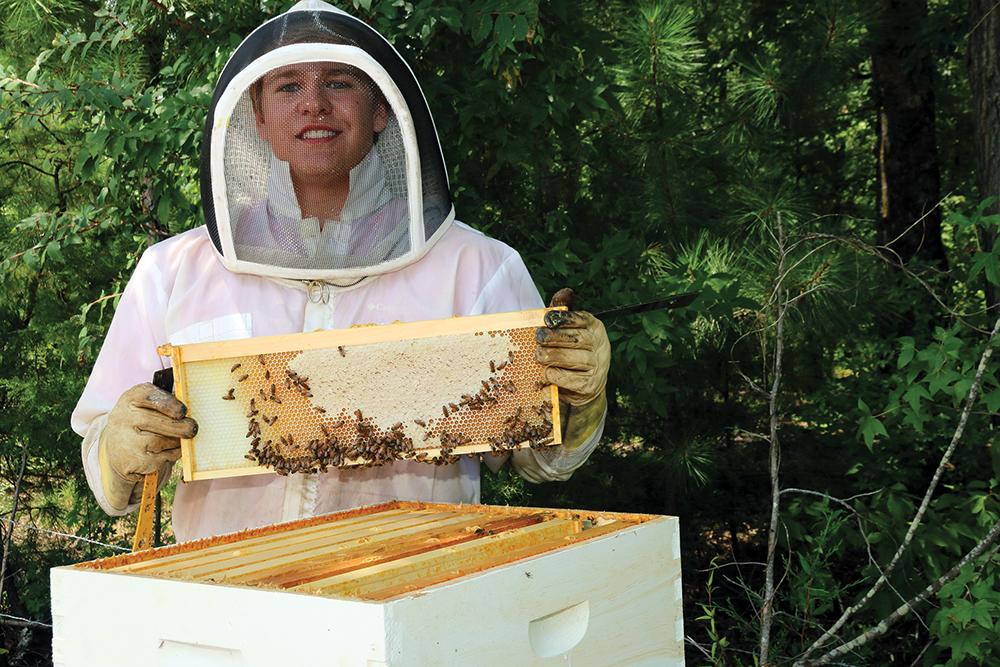
Probably the single greatest threat to honeybees, Williams says, is the Varroa destructor, a parasitic mite that feeds off the body fluids of honeybees, weakening them and also transmitting viruses to them. This mite is found virtually worldwide (except in Australia and a few other isolated islands across the globe), and while control measures have been developed to lessen its impact, much work still needs to be done to protect honeybees from the Varroa mite and other possibly emerging pests.
Another significant threat to honeybees (and other pollinators), and an important facet of Williams’ research, is how human activity, including land and chemical use and loss of habitat, affects honey bees and other pollinators. Through his research program, Williams will examine a range of issues while also taking into account the delicate balancing act needed to support both bees and society.
More interest in beekeeping
Though human activity contributes to honey bee threats, it is also a source of exceptional support for honeybees, something Williams is seeing over and over again as he gets to know Alabama’s beekeeping community.
There are currently more than 600 registered beekeepers and an estimated 7,000 honey-producing colonies in Alabama, a number that has increased in the last ten years and is expected to continue to grow as more and more people become interested in beekeeping and in consuming honey and other bee products.
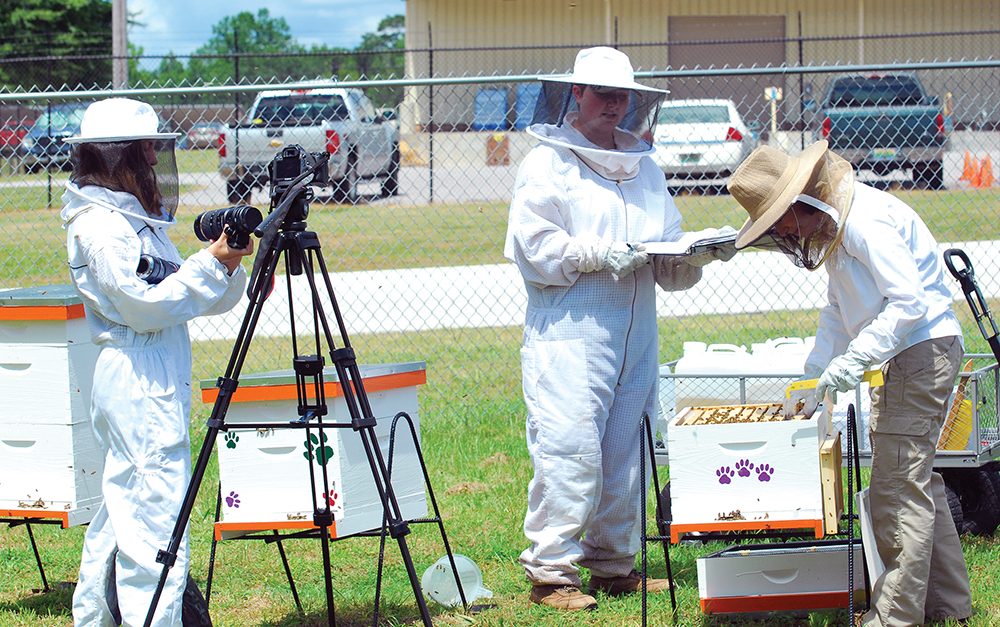
“There is a huge interest in bees here in Alabama,” said Williams, noting that last year’s Alabama Beekeeping Symposium, held annually each February for more than 20 years, drew more than 700 participants, the single largest such event ever. A similar turnout is expected for the 2018 symposium, to be held Feb. 9-10 at the Clanton, Ala., Performing Arts Center.
“And the people interested in bees are so diverse. They come from all walks of life,” he continued, noting that one of his lab volunteers at Auburn, an accomplished beekeeper, is also a 911 call center operator.
Another example is Melissa Heigl of Salem, Ala., a member of the east-central Alabama area Saugahatchee Beekeepers Association, a stay-at-home mother of five (a sixth one is on the way) who owns a home-based soap making business.
“This is my first year keeping bees and I do it for lots of reasons,” she says. “Sure, I love honey. I love helping save the bees. I love raising my own food. In addition to those reasons, I have to have an outlet for learning or I get really grumpy. I love to be challenged and bees certainly provide that!”
Yet another member of the Saugahatchee Beekeepers Association, Mary Ann Taylor-Simms, started keeping bees seven years ago for health reasons.
“I became a beekeeper primarily because I wanted to ‘grow’ my own honey for medicinal purposes,” says Taylor-Simms, a student support professional at Auburn University. “I suffered from seasonal allergies and would get a severe sinus infection about twice a year. I read that eating local honey may help with the allergy problem.”
Since she began consuming her “homegrown” honey, Taylor-Simms said her allergy problem has “virtually disappeared,” and she has also gained a greater appreciation for bees.
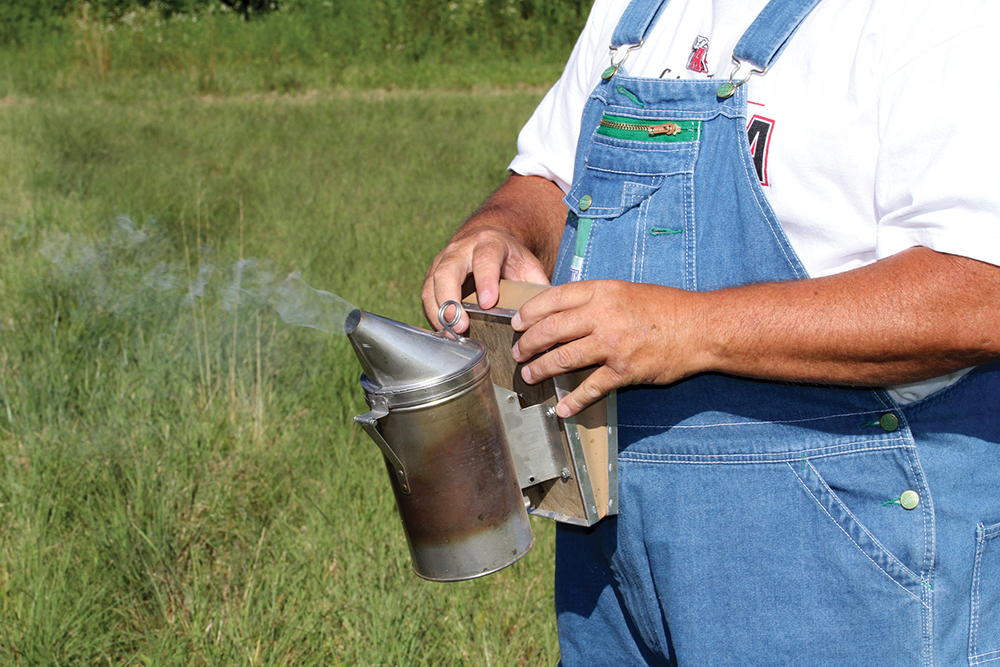
“As I got more involved in beekeeping, I began to learn about the importance of bees as pollinators and how vital they are to our food supply,” she says. “After a brief hiatus from beekeeping, I’m back to learning from the bees — they teach me something each time I open their hives for inspection. I still take my daily dose of ‘nectar from the gods,’ but now I also have a great respect for them, knowing how important they are to my own survival.”
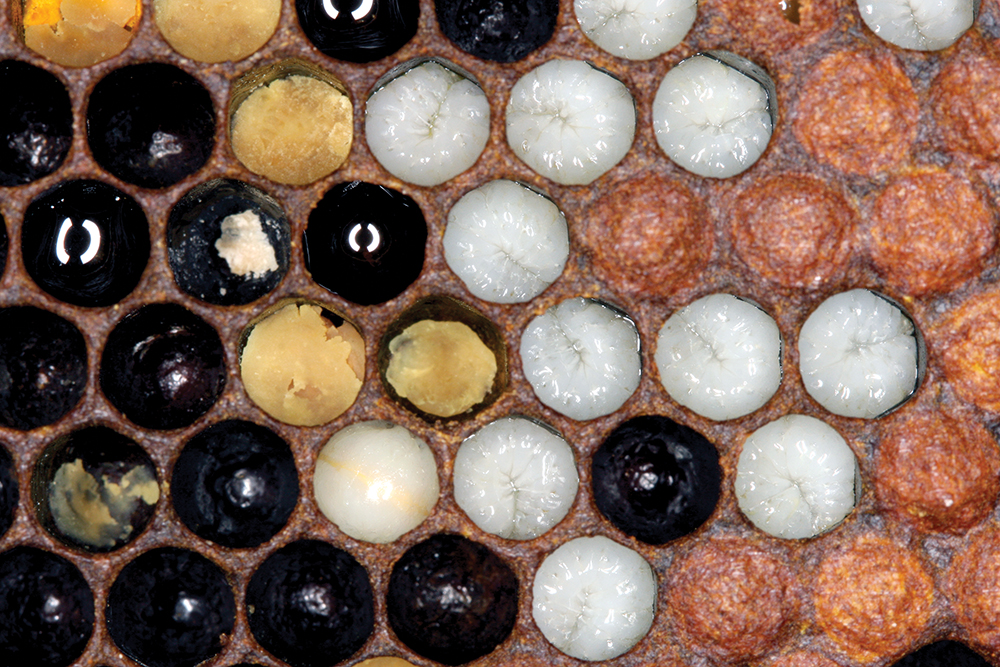
Regardless of their reasons for keeping bees, apiculturists seem to have one thing in common — a deep commitment to working together to keep bees safe — and Williams is looking forward to connecting with more and more of those beekeepers as his program matures. He also hopes to help new beekeepers get involved.
“We are working with Extension and other groups in the state to set up an extensive network for bee information so that there will be a base of knowledge about beekeeping in each part of the state,” he says.
Until that network is fully functional, however, anyone interested in learning more about bees and beekeeping — and possibly joining the ranks of famous apiculturists — can contact the Alabama Cooperative Extension System, state and local beekeeper associations and other bee and honey organizations (see list in below).
Want to learn more about bees and beekeeping in Alabama? Check out one or all of the following resources.
The Alabama Beekeepers Association, an organization of beekeepers and bee enthusiasts from Alabama and surrounding states, offers information for advanced beekeepers and for those just starting out. Contact them at www.alabamabeekeepers.com.
There are also 27 known beekeeping organizations in the state to help local beekeepers. Find a list of them at bit.ly/2x4SjAc.
Alabama Cooperative Extension System offices throughout the state can provide a wealth of information on beekeeping and protecting pollinator populations in the state. They also offer a publication, Backyard Beekeeping www.aces.edu/pubs/docs/A/ANR-0135/ANR-0135.pdf that will soon be turned into an interactive iBook. For more information on Extension resources contact your county Extension office or www.aces.edu.
Honeybees are amazing social creatures who produce a variety of products and provide a number of services.
Here are a few bee facts.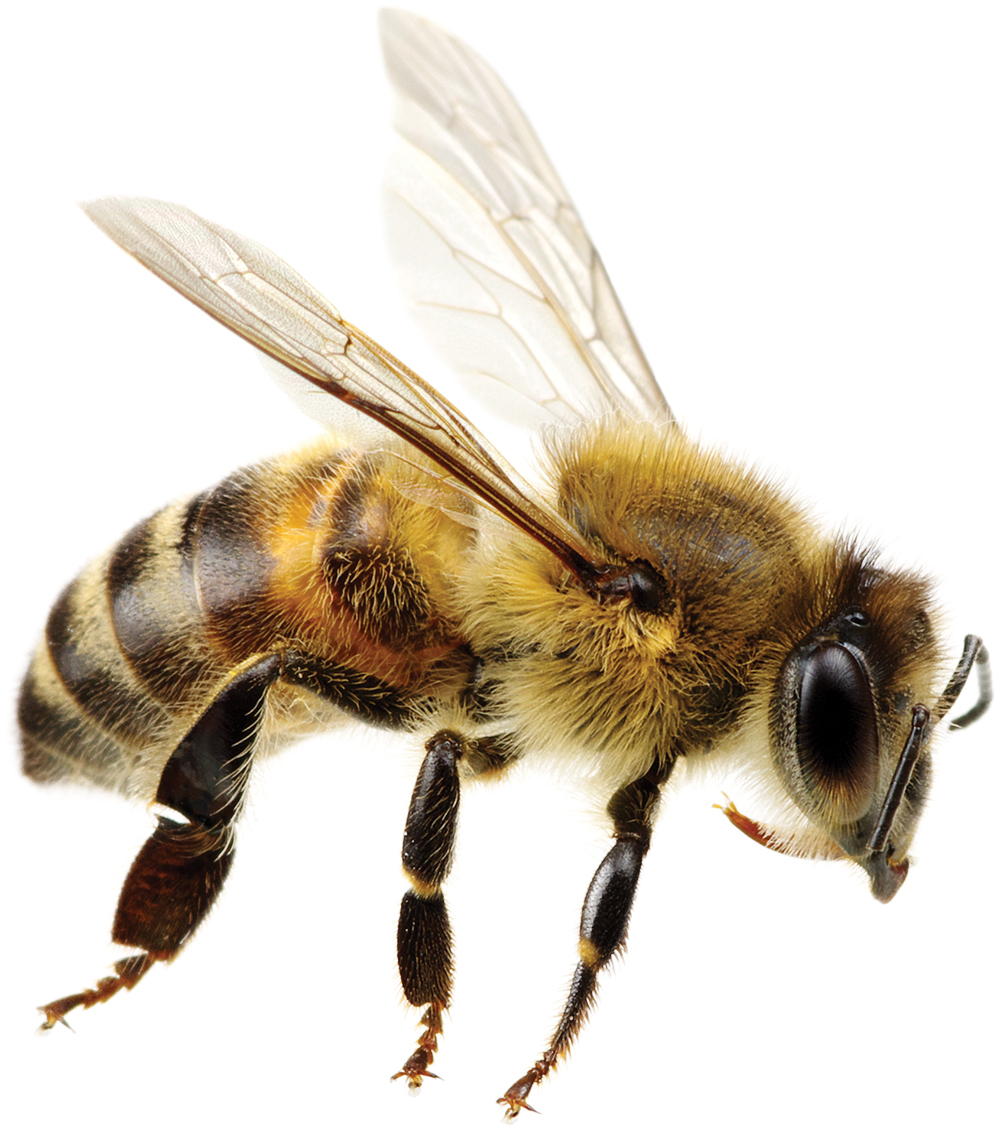
Alabama Honey: this comes in a variety of flavors and colors depending on the plants that bees have visited. Alabama cotton honey is lightly colored and delicately flavored.
Beeswax: this bee byproduct has many well-known uses, candles and cosmetics to name a couple, and has also been used to create art and help clean up oil spills.
Propolis: bees produce this resinous substance, sometimes called “bee glue,” from the plant saps and resins they pick up in their foraging and use it to seal small gaps in the hive structure; it is used by humans as a nutritional and medical supplement.
Royal Jelly: this bee byproduct is the gelatinous, opaque substance that worker bees secrete and feed to the queen and her larvae and is also used as a nutritional and health supplement by humans.
Pollen: pollen residues that collect in hives as bees come and go can be collected and used to research the foraging activities of bees or can be stored and fed to “kept” bees when other sources of pollen are depleted.
Colonies: a bee colony contains a queen, hundreds of male drones, 20,000 to 80,000 female worker bees and the eggs, larvae and pupae of the queen’s offspring.
Establishing a hive: though fall is a good time to plan, the best time to establish a new colony (hive) is in the spring, preferably late March and early April when fruit trees and other plants begin to bloom.




